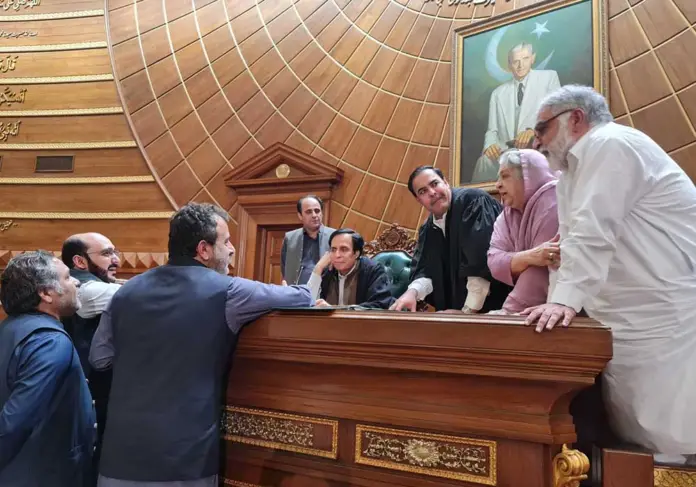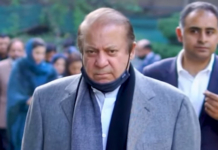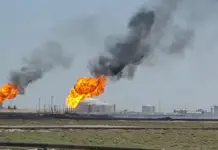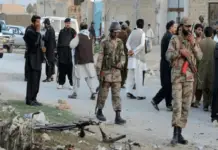The Punjab government has proposed a Rs3,236 billion budget for the fiscal year 2022-23 with a whopping Rs685 billion for development programs focusing on projects of road infrastructure and social sector.
According to the budget speech provided to reporters prior to Monday’s session, the Punjab government has estimated revenue receipts at Rs2,521 billion with Rs2,020 expected from the federal transfer.
The provincial revenue collection has been estimated at Rs500 billion, including Rs190 billion by the Punjab Revenue Authority, Rs96 billion by the Board of Revenue and Rs43 billion by the Excise Department.
The government has increased local revenue targets by Rs79 billion. The target of the Punjab Revenue Authority has been set at Rs190 billion with an increase of 22 percent, while the revenue target of the Board of Revenue has been set at Rs96 billion with an increase of 44 percent and the target of excise revenue has been set at Rs43 billion with an increase of two percent.
Around 40 percent of the development budget has been proposed for the social sector, 24 percent for infrastructure, six percent for the production sector and two percent for the services sector. It has been proposed to allocate 28 percent of the budget for other programs and special initiatives.
According to budget documents, Rs365 billion has been proposed in the development budget for the schemes already underway while an allocation of Rs234 billion has been proposed for new schemes. Likewise, a sum of Rs41 billion has been proposed for other development schemes and Rs45 billion for public-private partnership.
Under the development program, Rs272.6 billion was proposed for the social sector, including Rs172.5 billion for the health sector and Rs56billion for the education sector.
In the overall budget, it is proposed to allocate Rs485.26 billion for the health sector with an allocation of Rs296billion for non-development and Rs174billion for development expenditures. Under the development allocation, Rs21 billion has been set aside for Primary and Secondary Healthcare, Skill Development Program will get Rs4.2 billion and Punjab Urban Land Systems Enhancement Rs0.5 billion.
The Sehat Card program will continue and Rs125 billion has been allocated under this head.
Moreover, it has been proposed to allocate Rs428.56 billion for the education sector. Under the ongoing expenditure of Rs382 billion, Rs5.53 billion has been proposed for the ‘Zehwar-e-Taleem’ program, Rs3.2 billion for free books, Rs14.93 for school councils, Rs3.75 billion for Danish Schools, Rs21.5 billion for Punjab Education Foundation, Rs4.80 billion for Punjab Education Initiative Management Authority (PEIMA) and Rs1.50 billion have been proposed for dilapidated school buildings.
A sum of Rs59.07 billion has been proposed for the Higher Education Department. It has been proposed to allocate Rs1.52 billion for the Special Education Department and Rs3.59 billion for literacy and non-formal education.
A proposal for a 15 percent raise in the salary of government employees was made in the budget, while a 15 percent disparity allowance was also proposed for employees of certain departments.
The Punjab government has proposed increasing the minimum wage from Rs20,000 to Rs25,000 in the budget document.
Sources in the Punjab Finance Department confirmed that no new tax will be levied in the budget for the fiscal year 2022-23, while a special package will be given to combat runaway inflation.
It was proposed that the rate of stamp duty should be increased from one percent to two percent.
In budget documents, the government has proposed increasing tax rates on luxury homes by amending the Finance Act 2014.
Under the Prime Minister’s public utility package, the Punjab government has proposed an allocation of Rs200 billion.
Under the package, Rs142 billion has been allocated for reduction in food prices, provision of transport facilities at discounted rates, availability of fertilizer to farmers at discounted rates and provision of other agricultural necessities.
A sum of Rs528 billion has been allocated for local governments.







